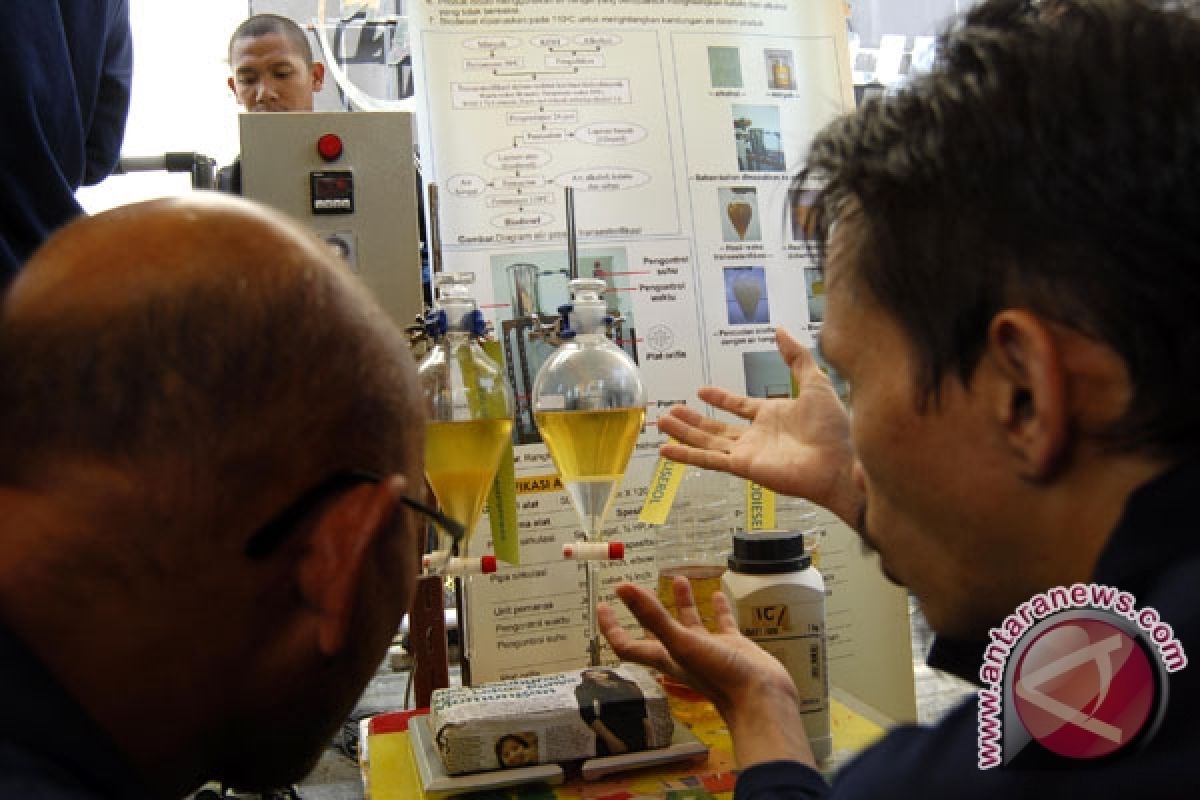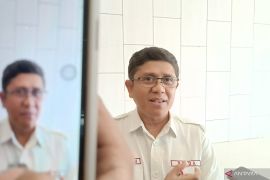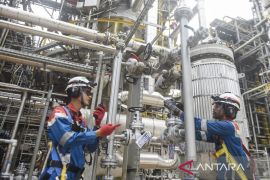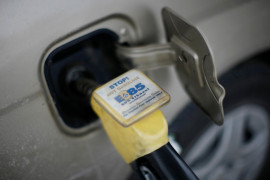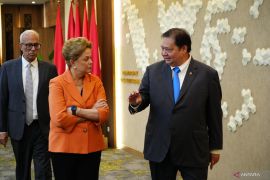The subsidies, which were earlier given to fossil fuels, are now being redirected by the government to develop biodiesel and bioethanol in order to achieve the goals outlined in its biofuel program.
In implementing this program, the government has put in place a 10-percent biofuel mix of diesel fuel oil called B10. If successful, the biofuel mix will be increased gradually to 20 percent (B20) in 2016, for instance, when the biofuel mix is expected to reach 8 million kiloliters.
With the biofuel mix program, the government, in its national energy program, has set itself a target of 30 percent biofuel consumption by 2015.
Thus, some of the subsidies given to fuel oils, so far, will be diverted to financing the development of biofuels where the government has proposed to the House of Representatives (DPR) to increase the subsidies for biodiesel and bioethanol.
Commission VII on energy affairs of the DPR on Wednesday approved the proposal of the Minister of Energy and Mineral Resources Sudirman Said to increase the subsidy for the biofuel mix program.
During a working meeting on the Draft 2015 Revised State Budget on Wednesday night, Commission VII Chairman Kardaya Warnika stated that the House agreed to increase the subsidy from Rp1.5 thousand per liter to Rp four thousand per liter for biodiesel and from Rp two thousand to Rp three thousand per liter for bioethanol.
A subsidy of Rp1.5 thousand per liter for biodiesel and Rp two thousand per liter for bioethanol were earlier set in the 2015 State Budget.
The Ministry of Energy and Mineral Resources had earlier proposed a subsidy of Rp five thousand per liter for biodiesel and Rp three thousand per liter for bioethanol to the Commission VII. The proposal was made based on a simulation of the diesel price, which referred to the Mean of Platts Singapore (MOPS) and the rupiah exchange rate of Rp12.5 thousand per US dollar.
"A subsidy of Rp five thousand for biodiesel is too big, whereas based on the global reference it is only about Rp four thousand. So, we agreed to set the biodiesel subsidy at Rp four thousand per liter. For bioethanol, we agree to the proposed Rp three thousand per liter," noted Kardaya.
On the same occasion, Minister Said remarked that the government has two goals in mind for proposing increased subsidies for biofuels.
"First, the government is to diversify primary energy, and secondly, we are sending out signals on how we arrange the biofuel prices. Diversification of primary energy must be conducted soon in anticipation of the fuel oil prices returning to normal," the minister remarked.
After all, the government has also set a target for the use of 30 percent biofuels by 2025.
"Diversification must be done, so that we will not depend on fossil energy. We admit that diversification is expensive. Yet, it will be the same as the price of oil when it reaches US$100 per barrel," he noted.
The certainty in biofuel prices is expected to encourage biofuel industries to develop further.
"We will provide interesting incentives to investors, and for this, we have to give them the right signals. If the price is interesting, the industry can move on," the minister noted.
Therefore, to support the development of biofuels, the government has lifted subsidies on fuel oils and has diverted some to biofuels. Minister Sudirman Said noted during a previous Parliamentary hearing that the fuel oil subsidy will, among others, be diverted to developing biofuels.
He stated that beginning this year, the subsidy for fuels will be diverted to the productive sectors, including biofuels.
"In future, fuel subsidy will increasingly be reduced because it is diverted to the productive sectors such as bioethanol and biodiesel," the minister noted during a working meeting with Commission VII on energy affairs of the DPR on Monday.
Therefore, in the draft 2015 revised budget, the Ministry of Energy and Mineral Resources has proposed an additional budget for biodiesel, from the previous Rp1.5 thousand per liter to Rp five thousand per liter, and for bioethanol, from Rp two thousand per liter to Rp three thousand per liter.
Thus, there is an addition of Rp14.31 trillion in subsidy to the 2015 state budget, which previously only stood at Rp3.09 trillion. With the addition, the subsidy for biofuels in the draft 2015 revised budget will total Rp17.40 trillion.
The government also proposed the volume of bio-mix or B10 to be increased from the previous 15.67 million kiloliters to 17.05 million kiloliters in the draft 2015 revised budget, the minister remarked.
"This year, we have 10 percent diesel oil-biodiesel mix target (B10). We are also thinking whether it could be increased to B20 in accordance with the proposal of the finance minister," Minister Said noted.
Director General for Renewable Energy and Energy Conservation (EBTKE) Rida Mulyana explained that the increase in biofuel subsidies will have several benefits such as saving foreign exchange and reducing dependence on fossil oils worth Rp20.4 trillion, among others.
It will also increase the added value of crude palm oil (CPO) downstream industries, which process CPO into biofuels, valued at Rp7 trillion, boost the worlds CPO price to US$146.62 per ton and help to absorb as many as three thousand workers. Indonesia is the biggest supplier of CPO in the world.
"For sure, there will be an increase in the palm oil farmers income by 15.3 percent," the director general claimed.
(014/INE/o001)
EDITED BY INE
(A014/KR-BSR/O001)
Reporter: Andi Abdussalam
Editor: Jafar M Sidik
Copyright © ANTARA 2015
